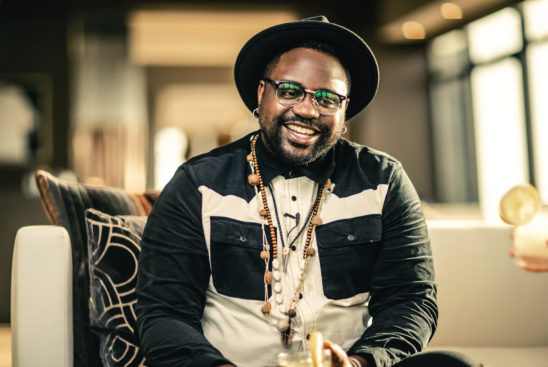A Drink With partnered with Maven Car Sharing to host Mission Chinese Food Founder and Chef Danny Bowien for an intimate conversation for the second episode in our series “A Drink With – Disruptors.” At the renowned Sichuan eatery in the Lower East Side we had a fresh green tea cream soda garnished with bee pollen with Bowien and some of our favorite New Yorkers. Bowien shared the highs and lows of his journey opening restaurants in New York, how he picked himself up after failure and how he’s not cooking for the critics this time around as he prepares to open a new location in Bushwick.
Let’s take it back to where it all began in San Francisco at Mission Street Food. How did the pop-up come to be that led to Mission Chinese Food?
Do you want the long version or the short version? I had worked in fine dining restaurants for a long time and a lot of my friends couldn’t afford to eat at the restaurants I cooked at. They were very high-end, special occasion kind of restaurants. I didn’t really feel like I had a connection with the people I cooked for. Plus, I was kind of getting jaded being in an industry where I didn’t associate with a lot of people that were around me on a daily basis. My interests were different than a lot of the people I was working with, so I thought I wanted to stop cooking. Long story short, my business partner, Anthony [Myint], started this thing called Mission Street Food, which was a pop-up inside of another restaurant. First it was a taco truck, then that got shut down because it was too crazy. In San Francisco bars close at 2 a.m. and most restaurant people get out at 2. Instead of going to bars people would go to this taco truck that he set up. He was serving fancy sandwiches out of it. You’d wait in long lines with beers and just be really loud and it got shut down. Anthony relocated to doing this pop-up and invited other chefs and creatives. It was not even executive chefs at restaurants, maybe the second in charge or just a line cook would come do a night at this Chinese restaurant. They called it Mission Street Food. I didn’t have a job, I threw in the towel and he was like, “You should come work at Mission Street Food,’” and I said no a bunch of times. I thought, “I’m done.”
And at the time this was unconventional. Were people wondering what this pop-up was all about?
Mission Street Food was the first pop-up restaurant ever. It sounds stupid and silly because now it’s a very common thing. No one had ever put a restaurant inside of another restaurant at that time.
What made you say yes?
Anthony is very convincing. Part of me wanted to do it. On my nights off I would go by there and peek at it and see all these chefs on their night off hanging out and doing cool stuff. I wanted to be a part of it, but I kind of wanted to be convinced. I thought, “I’ll just try it out.” I really gravitated toward it because it was such an unconventional environment. The original owners of the restaurant still own it. We don’t own that restaurant but it’s still a pop-up. It’s a Chinese family and at the time English was not the first language spoken at that restaurant. Anthony happened to speak Cantonese — kind of — so he would communicate but it didn’t make sense. It was very foreign. We were in everyone’s way but it worked so it felt very DIY and I really love that about it. It felt very against the grain.
In the moment did you feel like you were on to something special?
I didn’t realize I was on to something special, I just realized that it was something unique, something different. I mean, I guess that’s special. We would charge almost nothing— six dollars, eight dollars. We’d donate 75 cents of each dish to a food-based charity. Each chef would pick the charity. It just felt great. It felt really refreshing, democratic and for everyone. It was interesting because it started to gain traction and if the chef from a fancy restaurant would come in, some people would come that would subscribe to going to those restaurants and they would be like, “Where the hell am I? This is weird.” And we love that. I love catching people off guard. That’s what the restaurants I was working with were about, it was about the element of surprise on a very high level. People would be eating something and they would think, “I didn’t expect that.” We wanted to take that and put it into an experience as a whole.

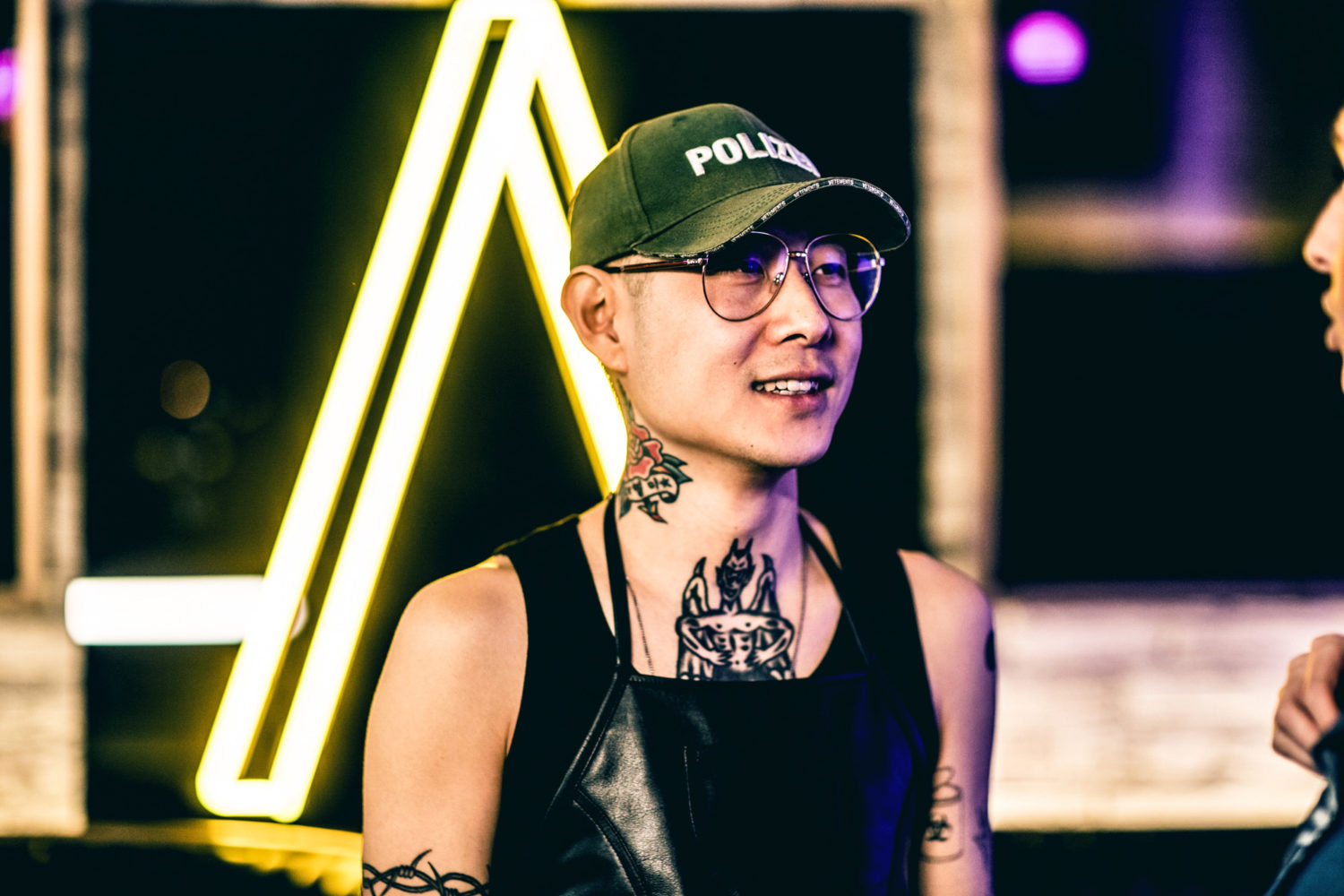
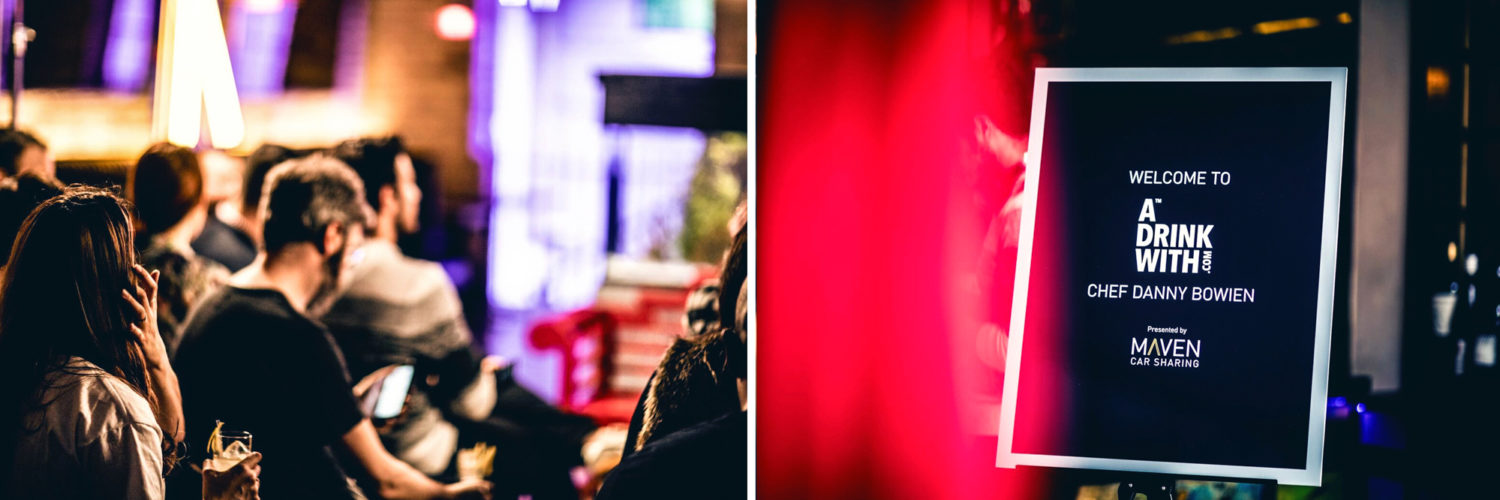
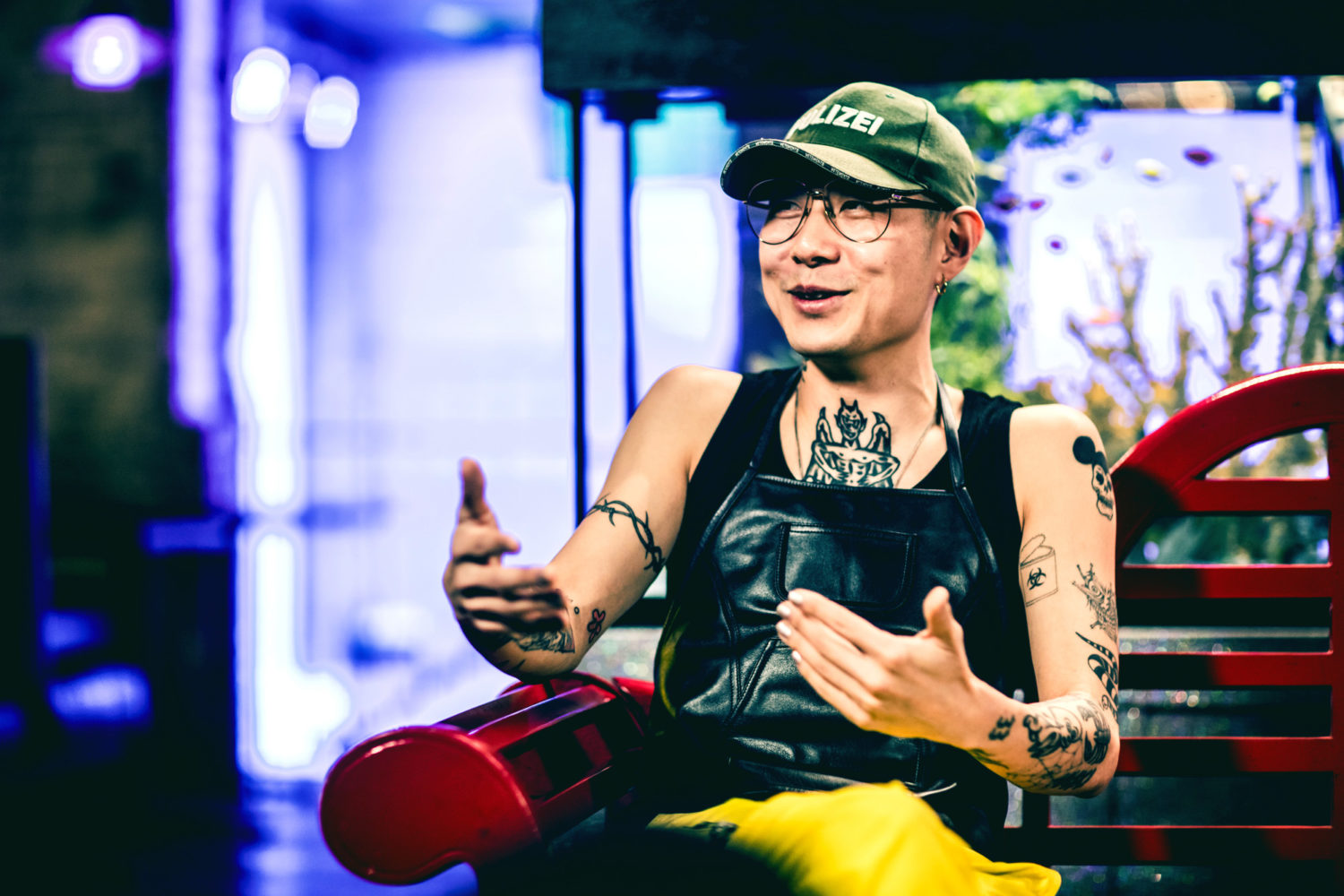
What do you consider your most innovative dish to date?
I think the Chongqing chicken wings or the mapo tofu are the most innovative dishes that I’ve tried to get down. After Mission Street Food was winding down, Anthony wanted to open a restaurant with some friends of ours, but I didn’t want to do that. I didn’t know what I wanted to do. I didn’t want to keep doing the pop-up thing. Inviting guest chefs and trying to organize people was really hectic. I thought, “Maybe I’ll just stay behind.” I got along with the family well, so I thought I’d just make Chinese food. I had this ‘oh shit’ moment, this light bulb moment where I had mapo tofu for the first time at this Taiwanese restaurant in San Francisco called Spices II. It was really alarming because when you’re a line cook and you’re young you think you know everything. I thought I tasted most things you could taste. Then I had this mapo tofu dish and it was spicy, numbing and really crazy. That was a big moment for me. One night at Mission Street Food we did just Chinese dishes and called it Mission Chinese Food. I tried to make that dish and it was really hard because I cooked in a lot of restaurants but I never cooked in a Chinese restaurant. I thought I’d make Sichuan food because the owners of the restaurant were Cantonese and always bagged on everything we did asking, “Why are you cooking it like that?” Even if it wasn’t Chinese food, “Why are you cooking a steak like that?” But they didn’t care, they would just comment. I didn’t want to deal with making conventional Chinese food, so I thought, “I’m going to make really spicy Chinese food because the owners are Cantonese and they don’t really eat spicy food.” I could get away with this backdoor entry into figuring it out because they weren’t going to eat it.
Would you consider yourself a disruptor when you were a child? Were any rule-breaking qualities present in your childhood?
Not really. I was adopted when I was three months old. I grew up in Oklahoma by Oklahoman parents. I was raised in a very religious household so we were taught to not break rules and go with what the odds are in favor of which has shaped how I am today because I kind of try to go against that.
You were profiled on Season 6 of “Mind of a Chef.” The show takes a personal look into your life and career. Is there anything you learned about yourself in the process?
I learned a ton about myself in that process. One of the main things I’ve learned is that I found myself through cooking and food as a form of expression and discovery and an outlet. [Restaurants are] a very familial kind of vibe. Every day you come together, every day you’re around these people more than you’re around your own family. You set it up like you’re going towards something, you have this moment of service where you’re serving people and then you clean up and go home. I did find out a lot about myself by being followed around by a camera for three months and telling my life story. It’s interesting to see it documented on film and just to see myself at that time in my life because I was going through a lot when we were filming. It was very in-depth and personal. It was great.

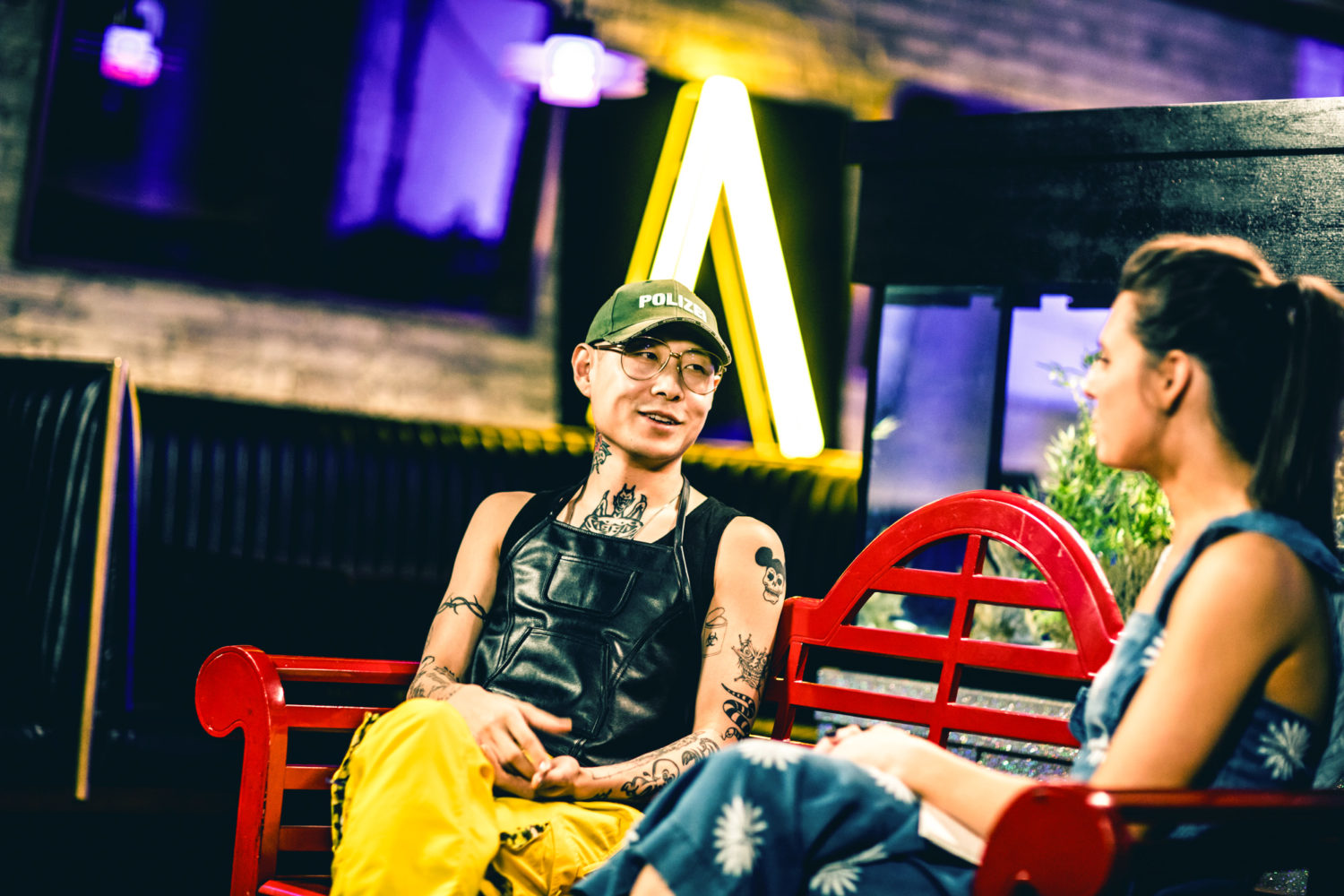

You’ve said failure is an opportunity. When you look back at your life, when can you recognize that? In the moment that’s not always easy to do.
It takes a lot of picking yourself back up. The first time I failed… When Mission Chinese Food opened in New York, it was like the hottest restaurant ever and we didn’t know how to run a restaurant or operate a business. I was a good line cook and I was like, “Let’s open a restaurant in New York.” We didn’t know how to navigate New York, so by day one we ended up getting hammered on by the building department, the health department, so eventually we got shut down by the health department. That’s like the worst thing that can happen as a restaurant. I laugh about it now but at the time you think, “That’s it, my life is over. This is my livelihood, this is my brand, this is everything I’ve worked so hard for.” You realize that you have to look at these things as opportunities. It was never meant to last. If I look back at Mission Chinese Food on Orchard Street… it was like a party in a dorm room with a hundred people. It was insane. There was a keg of beer that we gave out for free because people were waiting for four hours. It was like a tinderbox waiting to catch fire and it did. It took about three years to learn, to look at it and laugh at it. If that didn’t happen, I wouldn’t be able to sit here and do this now. I’m happy to have experienced failures like that, because it means I took a huge risk. The risk paid off and in many ways it didn’t. You get to learn a lot in those moments. It’s like exercise. I go to SoulCycle a lot. When you’re exercising, you can just phone it in. You can ride and not do anything. Unless you’re putting the resistance on you’re not really getting a workout. In those moments when it hurts and it sucks and you’re like “I’m done,” that’s when you’re actually growing and I think that’s what failure is. Failure is the opportunity to grow and to get stronger. In these times of transition through failure that’s when you actually develop the muscle and get stronger.
After being shut down by the Department of Health, did you want to throw in the towel? What inside of you made you keep it moving?
I think inside of me I’ve always been on this quest. I’m restless. I think that has a lot to do with me being adopted and not knowing where I’m from and not having a connection with my real family. I’ve never been like, “I quit.” For better or for worse. As I get older, there are moments when I think, “Yeah, maybe it’s time to stop doing this, stop pursuing this, stop pursuing a business relationship with someone.” I’ve had many business partners and professional working relationships with different chefs and I’m starting to realize when it becomes a detriment to my own happiness and creativity. I think that that’s a really important lesson I’ve learned. I’ve never said at that moment I wanted to quit. I just wanted to get back up. I really wanted to pick myself back up and get back to where I was. I feel like even now Mission Chinese Food does not even come close to realizing it’s full potential because we’ve been learning and jumping through all these hoops in New York.
You won the James Beard Award for Rising Chef in 2013 and this year you were nominated for a daytime Emmy for Outstanding Culinary Host for “Mind of a Chef.” Do you still feel like you have something to prove?
I’m trying to become more present in the moment of what’s happening. When I watch “Mind of a Chef,” I think, “Oh my God, that happened?” I can’t believe it. I didn’t even remember I was the World Pesto Champion for like two years. In those moments I was just freaked out. I didn’t really know how to handle the expectation. There was just this white heat and expectation that came along with that. I’m a people-pleaser. I think a lot of restaurateurs and chefs are in this business because they want to make people happy. That’s kind of gotten in the way of me understanding and appreciating my own success. I cut coping mechanisms out of my life that a lot of chefs and creatives turn to: alcohol, drugs, that kind of stuff. I don’t do that anymore. It’s helping me become more present in the moment of what’s happening. The Emmy thing is big but I kind of deflect. I think, “Yeah, that’s amazing but I gotta go do this thing now.” Stopping and taking it in is important.
Was it easy to stop drinking?
I quit drinking very quickly five years ago. I thought, “I can’t do this anymore.” As a chef it’s really easy [to drink] especially when you have your own restaurant. I intentionally set up a rosé keg on tap — not whiskey or anything, rosé — next to a sparkling water tap. It was in the bar and everyday I would make myself a rosé spritzer. I would make myself enough of those every night to the point where I would just be falling down the stairs. I wouldn’t eat all day, I would be working, so I thought, “This is problematic.” All day I was trying to recover. It was all about recovering and being able to get back to 8 o’clock. I got tired of the cycle and I realized that it was something that really got in the way. In the beginning it works until it doesn’t work anymore. As a creative a lot of my friends are artists and they really worry about cutting out some sort of their practice that helps get them to this place. I was very worried. I thought, “How am I going to do this? How am I going to deal with the stress?” But you just do. That definitely helped a lot. I’m a dad, I have a four-year-old. I just can’t be hungover anymore.
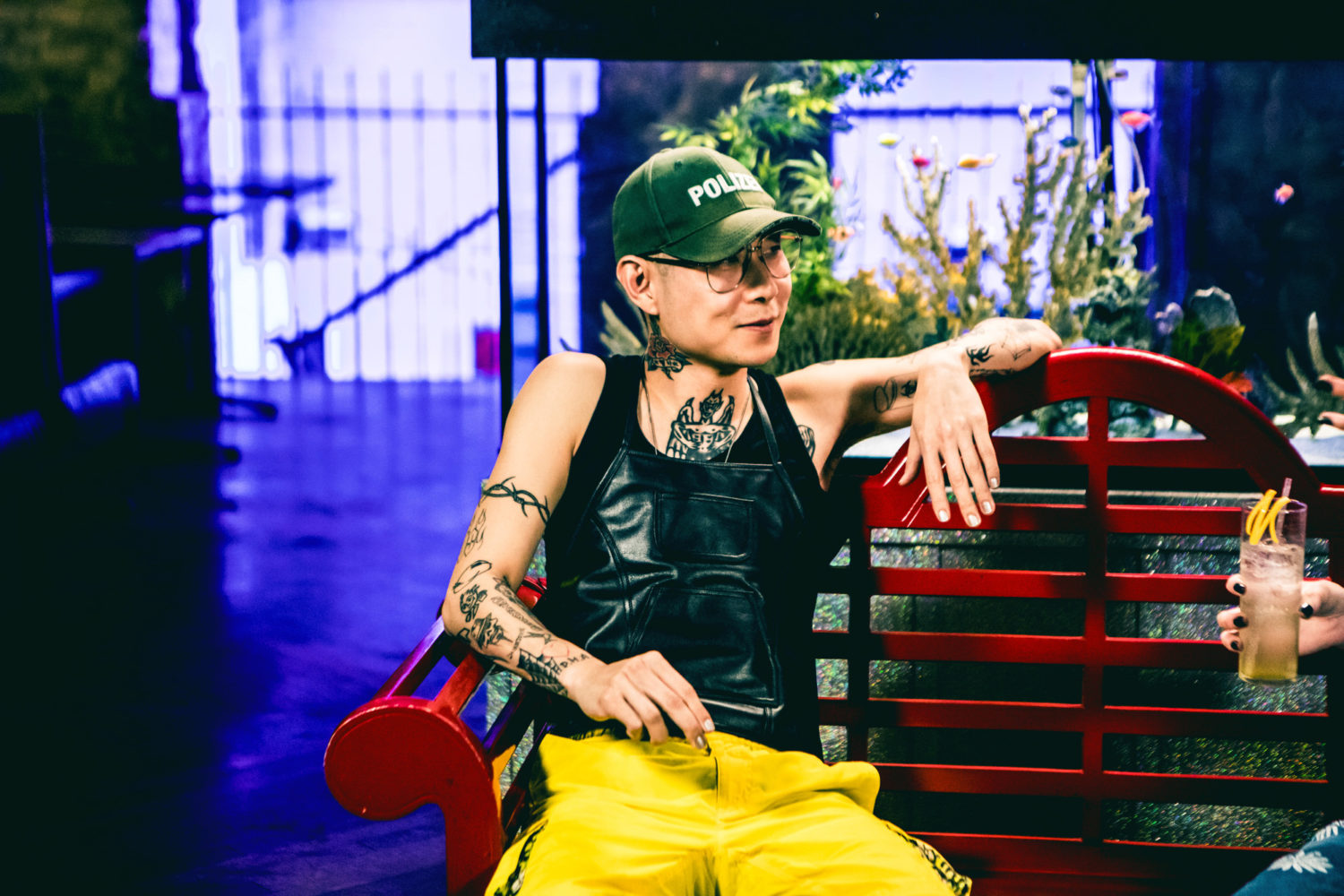

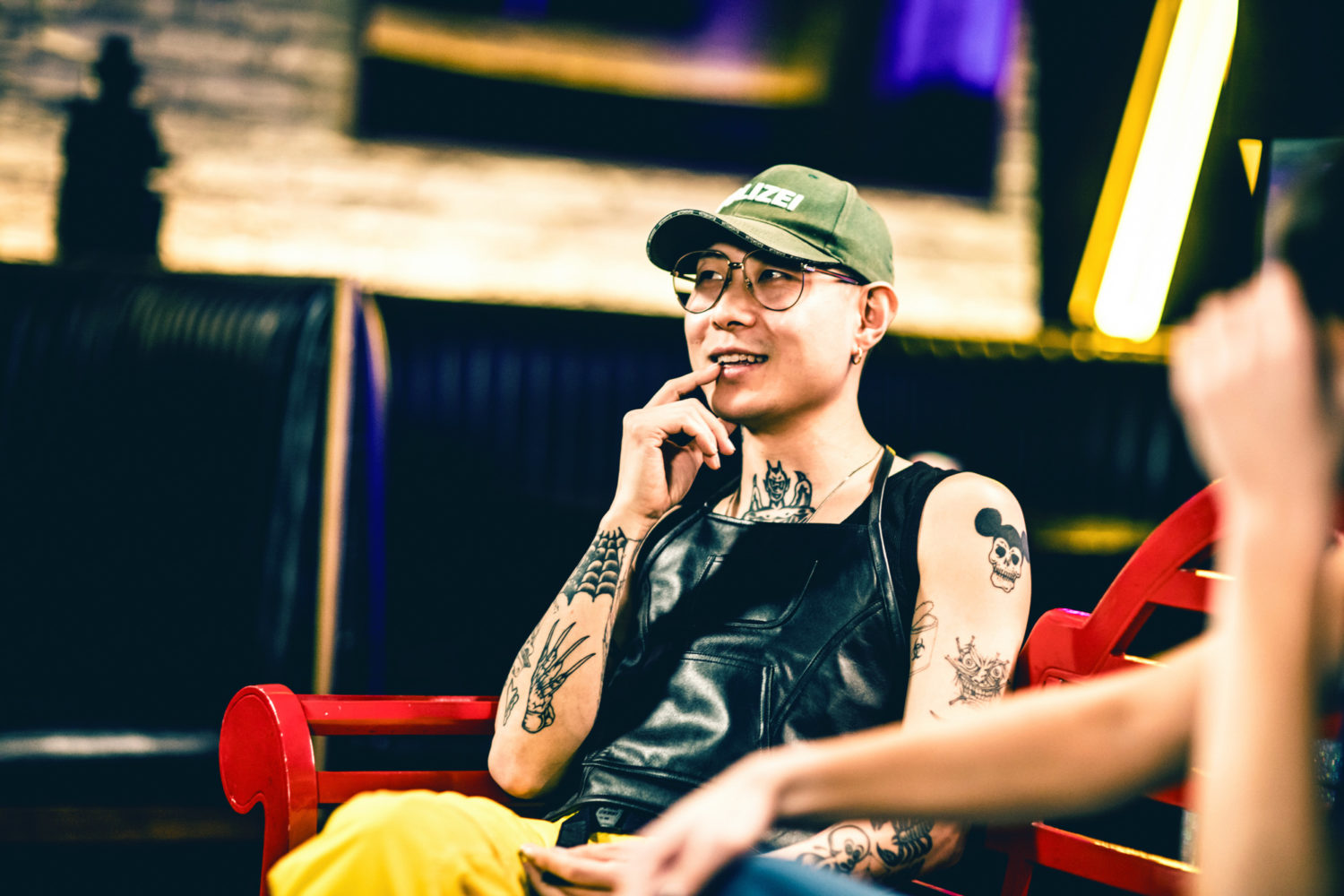
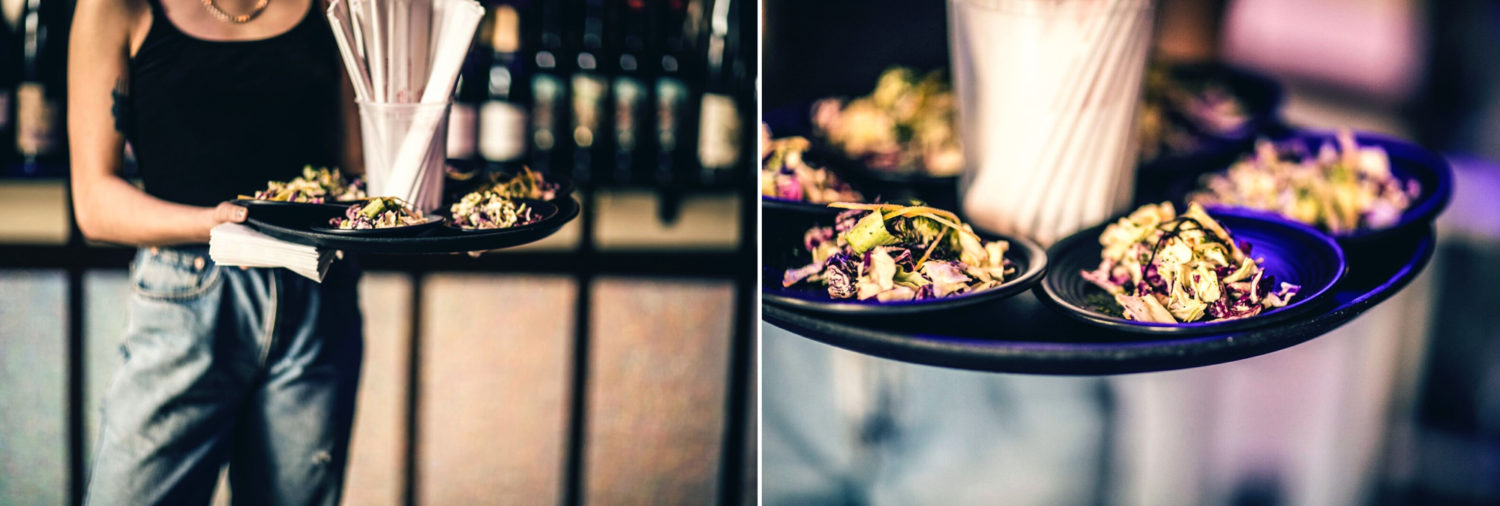
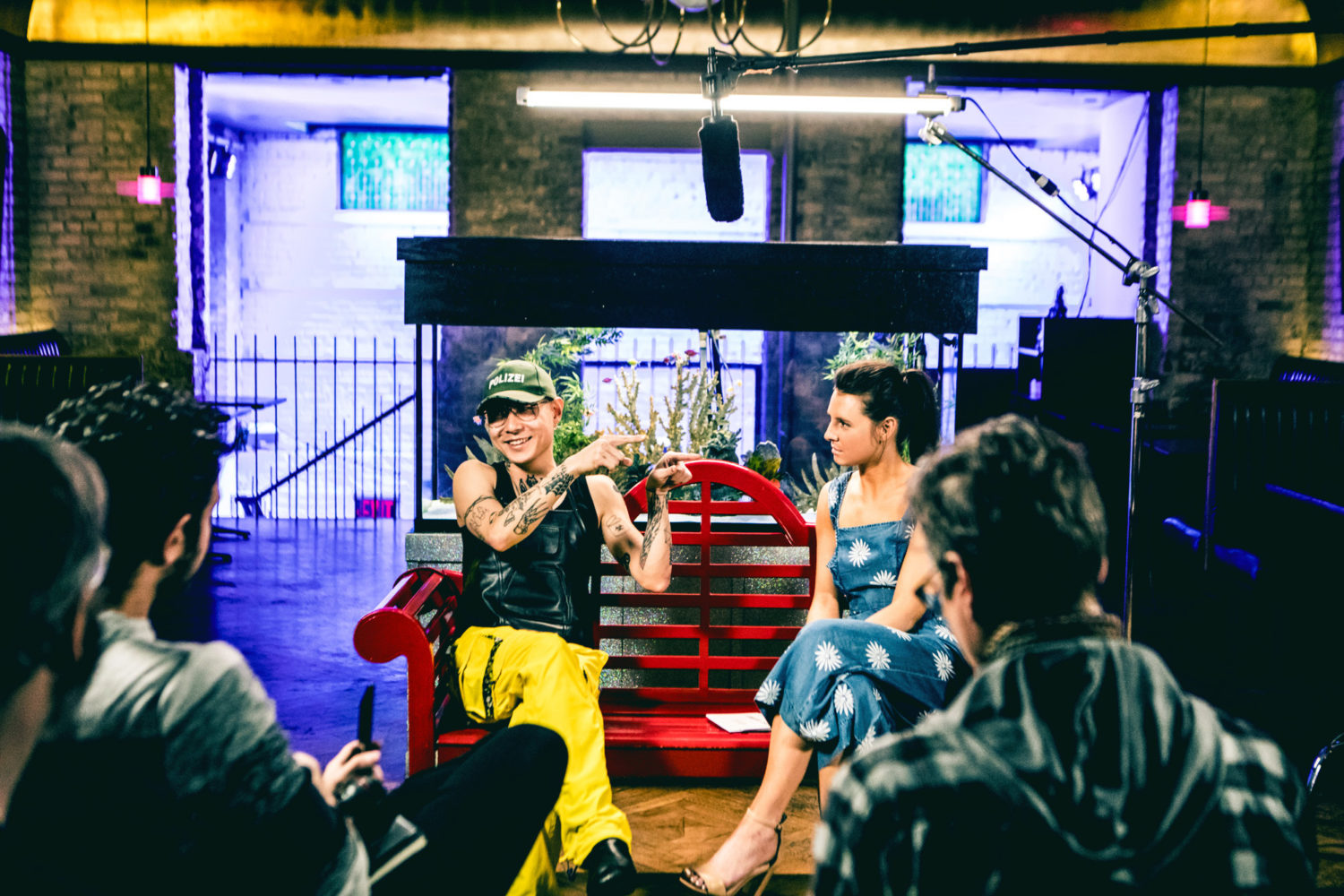
As we see on your Instagram story, your son is spoiled with the breakfasts and lunches you make him in the morning.
Basically all my Instagram stories are me making Mino, my son, breakfast and lunch when he’s asleep because I get up at six in the morning. It’s really boring cooking. The funny thing is, he doesn’t really eat it. They’re like these really cool little bento boxes and he just eats some of it.
How is the pressure different as you get ready to open your new Bushwick restaurant compared to opening your other restaurants along the way?
It’s a good pressure. Every moment we’ve opened a restaurant in New York, it’s been under immense expectation, pressure, stress and fear. I was always scared. Everyone said, “Oh shit, Mission Chinese is coming from San Francisco,” and it was almost like you have this target on your back. I was very naive. I didn’t see it at the moment but all of my friends were like, “Everyone was hoping you would fail. There’s no way… a San Francisco restaurant in New York?” And we killed it. We crushed. I was hammered all night on rosé spritzers trying to get through. Then it gets shut down by the health department. [Next] we open this restaurant called Mission Cantina which was amazing. It was just very difficult because we were trying to come back. So that was on the heels of [the Orchard Street location] getting shut down. People wrote us off. We reopened Mission Chinese Food here and had to prove ourselves again. [People thought], “Will it be as good as the one Orchard Street?” And of course it was. It was better. But to answer your question with Mission Chinese opening in Bushwick, it’s a clean slate. We’re not doing it for the critics, we’re not doing it to regain anything. We’re doing it for ourselves, we’re doing it for the community in Bushwick. It’s in front of a music venue. We’re not doing something for anyone else. The pressure is there. It’s a good pressure, though. We’re stoked. We’re getting to do something not as an act of recovery. We’re pushing it forward.
How will your new location in Bushwick be different?
There will be some elements that are different and there will be the core dishes that we’ve had in the last seven or eight years like the wings, broccoli beef brisket, mapo tofu, kung pao pastrami and the bacon and rice cake. I can go on. We’re really going to be focusing on a lot of flavors of northern China so there’ll be some hot pot maybe. There might be some other stuff on the rooftop. When we opened this restaurant — as much as I didn’t want to do fine dining anymore—I leaned towards fancier. I think that was because I wanted everyone to be happy. After a few years I realized it’s not really what I want to do. This [location] was kind of for the critics. It was kind of flashy. It was more about setting ourselves apart but also kind of about ego. Being like, “How hard can I flex?” This new restaurant is really us cooking the food we want to eat that we’re really excited about. So it won’t be super fancy or super expensive. It will be a discovery. [With] all of the restaurants we’ve done, you can come and see us just figuring shit out. We’re figuring it out as we go. I think that you’ll see that there in a really cool way.
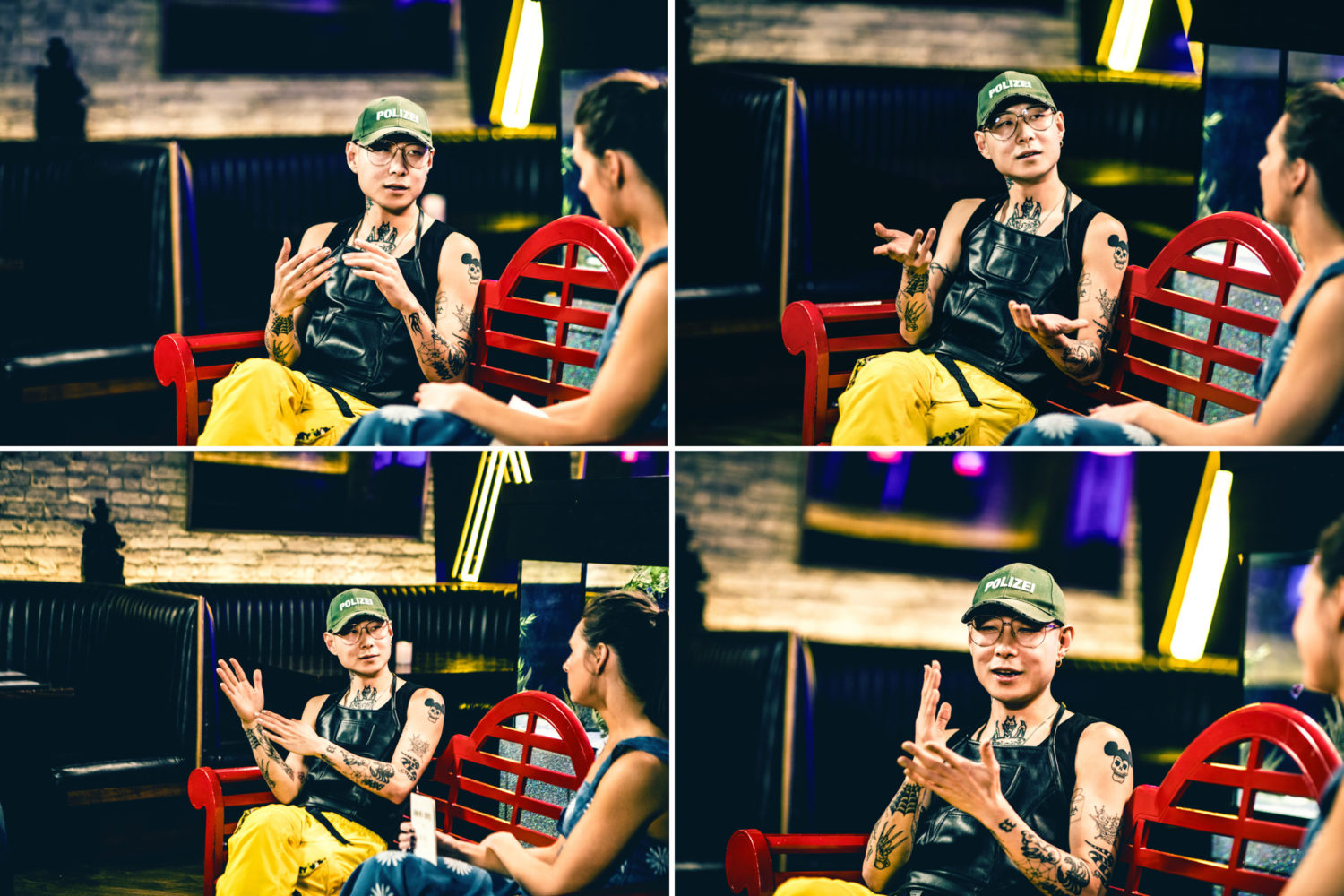
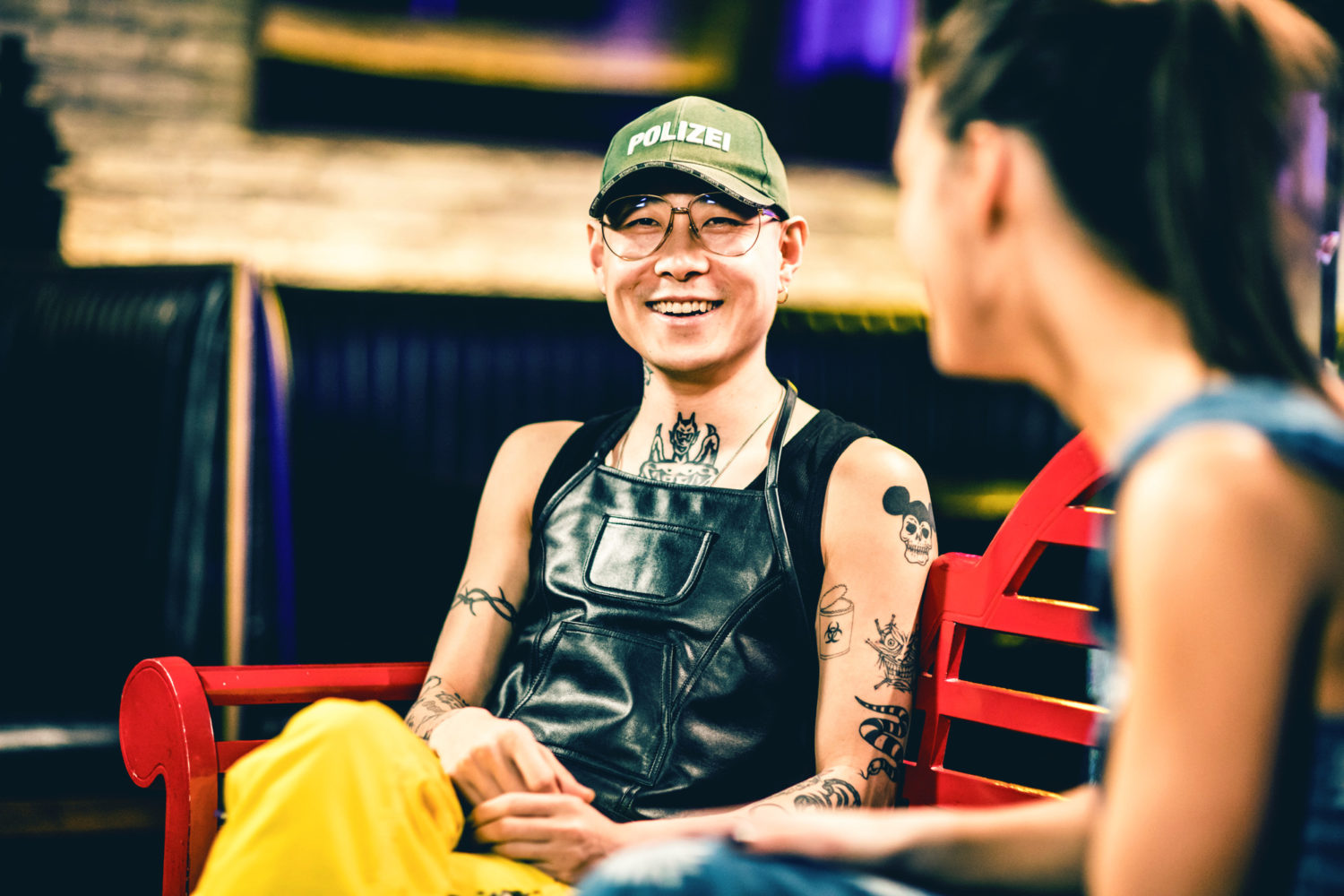

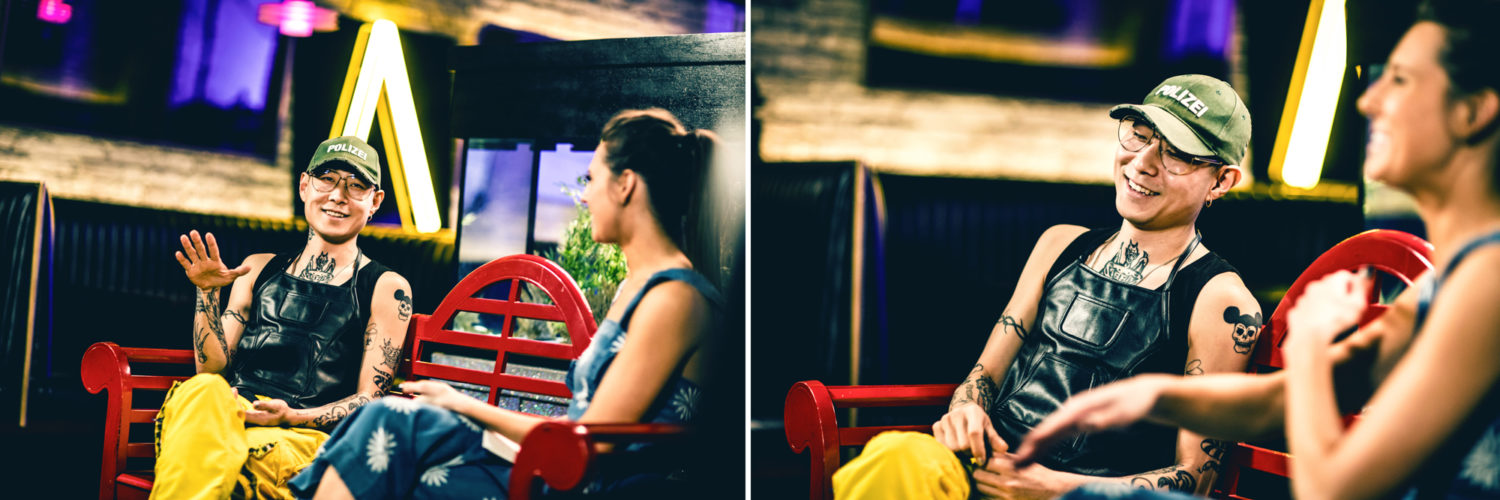
Do you get nervous when critics come in? Do you know they’re there?
Yes. It’s like this thing, you know they’re there. There’s a poster downstairs with everyone’s face on it. In New York, there’s like a hundred people. I mean Adam Platt from New York Magazine came in the first day we opened Mission Cantina. Who cares anymore? Do people actually care? People can make up their minds with social media. I don’t think it has the power it used to. I respect critics, I respect their opinion. But I’m kind of like, “What do you know?” … It doesn’t make sense to me. Even when someone asks for my opinion I say, “This is what I like. I don’t know if it’s the best.” There’s a respect that I have for the critical analysis of what I do. My business is very subjective— you do something, you put it out there. It’s like music, right? Who knows everything about music? No one. If a restaurant sucks because it’s bad, then it’s bad but we’re not doing that. We’re trying to make it really good. We’re not cooking for the critics this time around. They’ll come and we’ll serve them and we’ll probably do a whole song and dance thing. There’s this dance you do. You act like you don’t know them; You talk to them on the phone. I’ve talked to Pete Wells [the food critic for The New York Times] on the phone probably four times now. Ideally the critics identify the fact that we’re not trying to open a restaurant for that. It’s really for everyone. [Critics] can be involved. Everyone should be involved. We’re not trying to get a certain rating or stars. I pray for the day that we get the Michelin star so I can hand it back to them. I think that this whole industry has been driven by this critical analysis that dictates how you run a restaurant and your creative path. It doesn’t make sense to me.
The importance of having fun and doing something unique comes through in the experience at Mission Chinese Food.
It’s being genuine. If you’re making a restaurant just for critical acclaim to get two Michelin stars, it’s going to taste like a restaurant that was made to get two Michelin stars. That doesn’t excite me. I don’t think it excites a lot of people anymore. I think that people want to have a genuine, heartfelt experience that allows you to feel real emotions and thoughts. Not to say that that doesn’t go on in these other restaurants but I just think times are changing.
Do you have any advice for anyone going into the restaurant industry?
It’s a lot of work. It’s something you have to love. That sounds so cheesy and cliché but it’s the same for anything you do. If you want to be a musician you put yourself in this process of putting your work out there and people judging it. It’s a lot of work. More than I ever expected. It’s also the best. If you’re able to do something that you really care about, it’s the best job in the world.
If you could have a drink with anyone, who would it be?
I think Prince would have been amazing because Prince was the sickest musician of all time. He made amazing music, the top hits of all time but also could play so many instruments. Such an innovative visionary.
Where would you want to have this drink?
Wherever Prince wants.
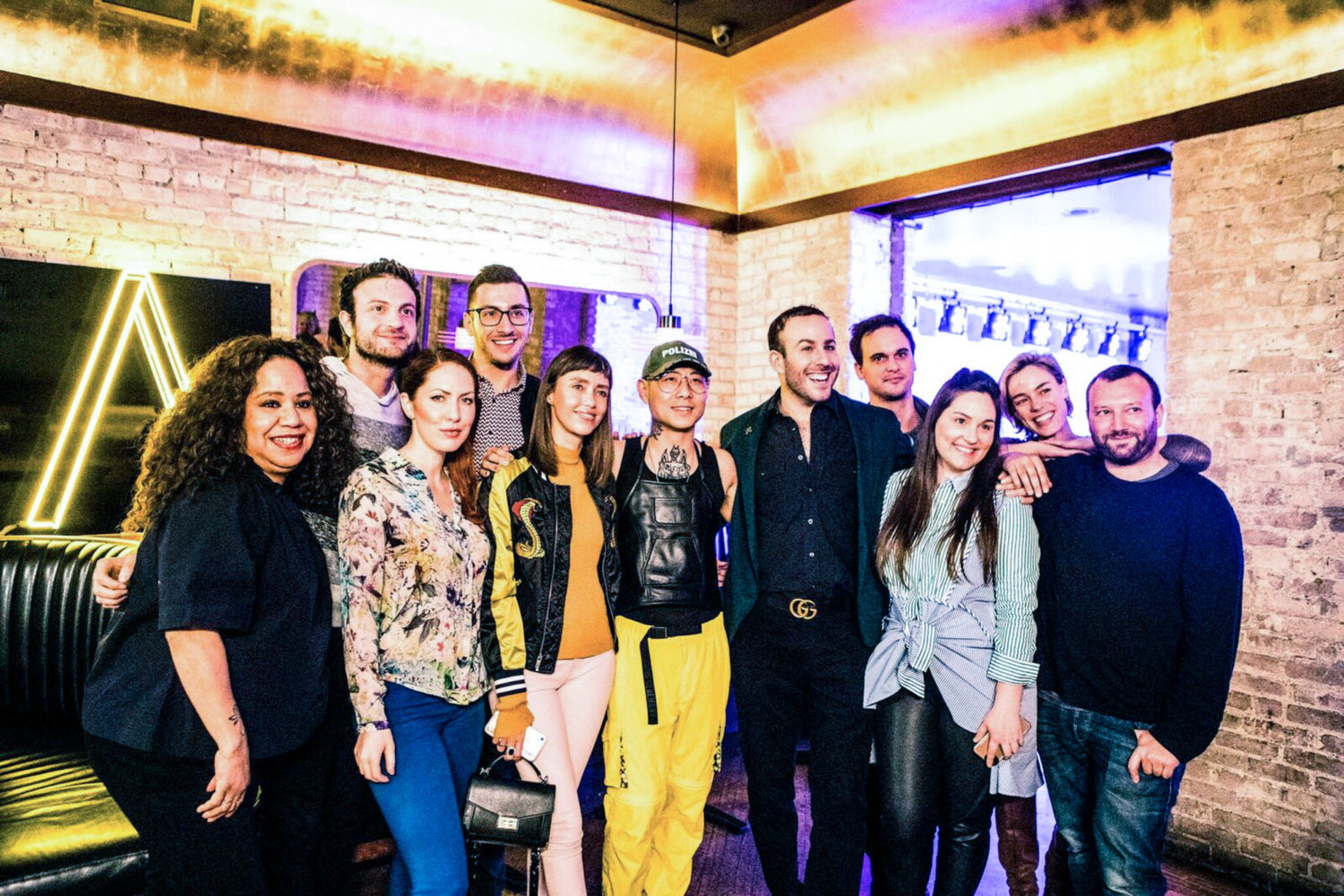

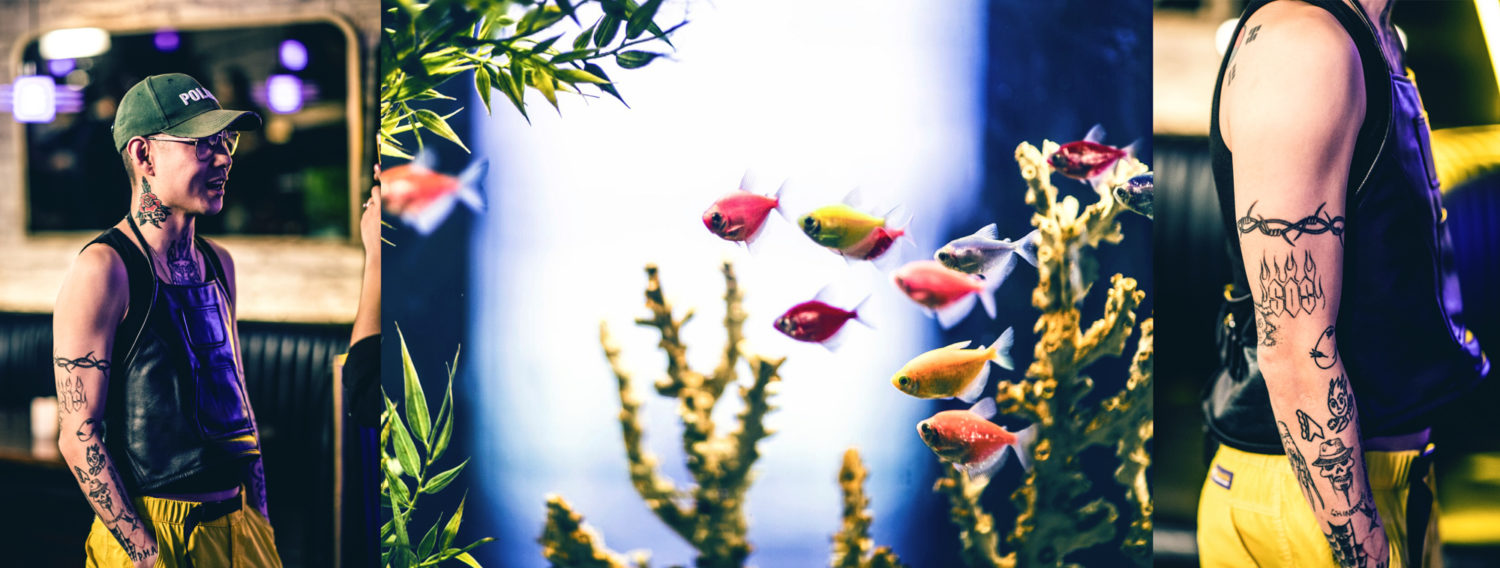
At A Drink With we’re proud to work with partners disrupting their industries in exciting ways. Maven works to innovate and move the transportation industry forward with a more connected experience. Maven Car Sharing gives people the benefits of car ownership without owning a car, allowing them to be part of the moments that matter most for them. Check out the full series here.
Did you enjoy this feature? Subscribe to our newsletter and never miss a drink, we promise we’ll never spam you!




